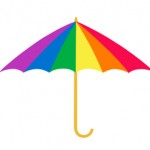How many articles have you read whose thesis is “Facebook and other social media monsters subtract from compelling real world interpersonal interactions?”
Every week I read about or meet someone force feeding this argument like it were doctrine. Brandlady.com explores these “broadly recognized” negative effects of Facebook touching upon Facebook addiction, being deprived of real world interactions, stalking people, etc. These may be broadly recognized, but they might also be, as our British amigos would say, utter bollocks.
None of the warnings I’ve read–and there’s a list–are the result of crunched data on the topic. Even the New York Times’s Twitter cautionary tale arrives at it’s point anecdotally. Op ed columnist Bill Keller ends his first paragraph with this did-I-just-read-this, “I felt a little as if I had passed my child a pipe of crystal meth.” How Bill, do you know what that feels like?
I think everyone auguring about Facebook is wearing the same skivvies as the people who warned that VCRs would cause people to stop going to the cinema. People also worried that the phonograph was going to cause concerts to die. These were educated, serious people at the time who raised these concerns in the same way people today warn us about Facebook.
As I write this post, I’m chatting with a friend in Guatemala, he’s reminding me it’s the burning of the devil there today. I’m as chatting with guy living in Ithaca, Ryan Nerhing. We were the same year in high school, but who went to a different school. Our relationship is acquaintance-ey, but since we know from Facebook that we both like to travel and are both living in New York state, we are planning a rendezvous sometime down the road. We both like Taco Bell on Facebook, so odds are we’ll meet at a Taco Bell in the coming months.
In my experience Facebook has not taken away from real-world interactions, it’s led more real world interactions than I would have otherwise had had I kept myself from the virtual world.
It’s true, some people live like hermits and have Facebook. They never go out. These people have been around long before Facebook. It’s not hard to why people who are naturally solitary–the Thoreaus of our age–Waldening it up in a basement apartment surviving off Netflix–are the biggest gainers from Facebook and family. Through them they still acheive a detached degree of socialability, and that’s better than nothing. I don’t think you can say Facebook is keeping them from interacting with people, since without it they wouldn’t have ANY interaction.
If you move around (and even if you don’t, you probably have people in your life who do), Facebook, plus the Star Trek stuff you can do with your iPhone, lets you keep a degree togetherness with people thousands of miles away. Everyday you interact with more people that you otherwise would have because of Facebook. Odds are you also go out into the world and have plenty of real-world interactions. There is certainly a deep end to go off with Facebook, and when people do, I wonder if we’re seeing the symptom or the cause?





